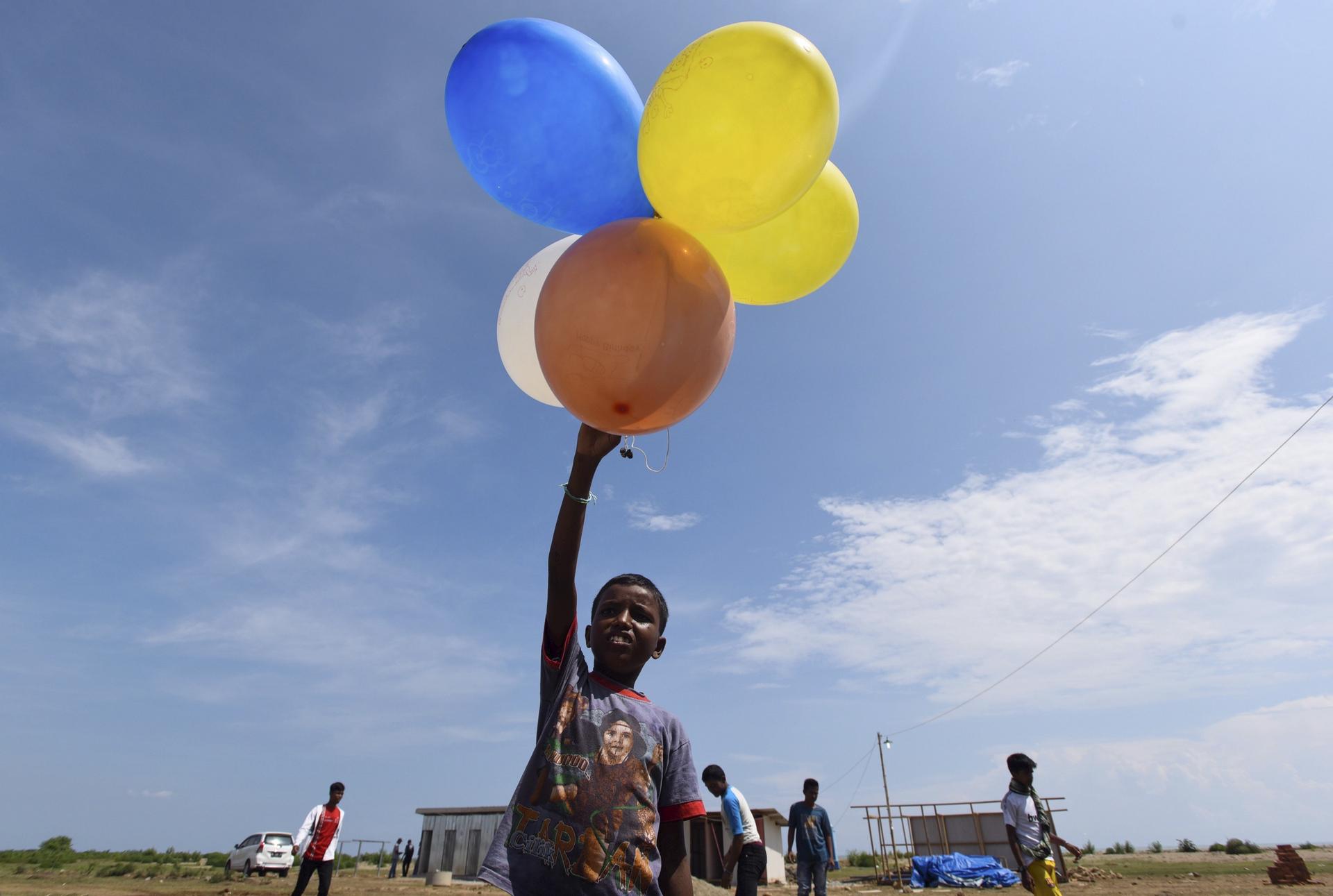The new US ambassador in Myanmar dances around the country’s most sensitive word
A Rohingya child plays with balloons at a temporary shelter in Aceh province, Indonesia, on June 2, 2015. More than 4,000 Rohingya and Bangladeshis landed in rickety boats throughout Southeast Asia in May that year following a crackdown on human trafficking in Thailand.
Years ago, when the newly appointed United States ambassador to Myanmar, Scot Marciel, first visited Yangon in a different capacity, he came to the American Center, a US-backed outpost of books and learning that was a haven in a country full of secret dissidents and spies.
“It was a place where people could meet and talk freely,” he said on Tuesday in his first speech as ambassador, standing behind a lectern at the same center. “I remember I would come in and meet with a series of [Burmese] people who would introduce themselves … and tell me how many years they had spent in prison.”
Myanmar is a different place now.
Social and economic reforms opened up the country in 2011. Political prisoners have been freed, and longtime dissident Aung San Suu Kyi guided her party to power in elections in November. You don’t need to go to the American Center to whisper about freedom anymore. You can do it on Facebook.
Read more: Myanmar Emerges
But that doesn’t mean the new Myanmar has resolved all of its old problems. Especially when it comes to human rights and the Rohingya, Myanmar's stateless, persecuted Muslim minority.
This was clear from the first question posed to Marciel on Tuesday.
“Can you confirm, did Aung San Suu Kyi directly ask you not to use the term ‘Rohingya,’ will you continue to use it, and depending on your answer, why or why not?” one foreign journalist asked.
Amnesty International has called the Rohingya the world’s most ill-treated refugees. While they have lived in Myanmar's Rakhine State for generations, both the former ruling junta and the new government deny their citizenship and insist on calling them immigrants from Bangladesh.
Which is why addressing them by their name is such a diplomatic landmine. Replying to the reporter, the US ambassador explained that the US will stick with using Myanmar’s most sensitive word, but refrained from actually saying it himself.
The US respects the right of groups “to choose what they want to be called," he said.
In opening remarks, Marciel had skirted the term by alluding to “some communities” in Rakhine State while talking about interreligious harmony.
He declined to go into specifics about any conversation with Suu Kyi.
Myanmar’s foreign ministry, one of many portfolios controlled by Suu Kyi in the new government that took over in April, reportedly asked Marciel not to use “Rohingya” after the embassy released a statement including the word in April, which set off a rare anti-US protest by Buddhist nationalists. The embassy responded to media requests after the demonstration by saying communities have the right to self-identify.
More than 100,000 Rohingya currently live in destitute IDP camps, after deadly Buddhist-Muslim violence in 2012. Last year, thousands attempted dangerous sea journeys to seek new lives abroad, but a crackdown on the trafficking system has curtailed “sailing season” in recent months.
Read more: Myanmar's state-backed militias are flooding Asia with meth
The international community continues to be shocked by Suu Kyi’s reluctance to tackle the Rohingya issue head-on. In a recent New York Times editorial, the paper of record called her stance “cowardly.”
The US, including President Barack Obama himself, has noted its concern over the plight of the Rohingya. Suu Kyi’s government, meanwhile, has bristled at being told what to prioritize amid myriad other agenda items, from the peace process with ethnic rebel groups to growing the economy.
Marciel’s Rohingya comments were watched closely inside the country, and the reaction to even his careful sidestep was vehement.
On Wednesday, the US Embassy’s Facebook page filled with hundreds of comments from Buddhist nationalists denouncing Marciel. Some even demanded that he leave the country.
Later in the day, the ambassador was in the capital, Naypyitaw, meeting with Shwe Mann, a powerful figure who was purged form the former ruling party and now holds a vague position in parliament.
After the meeting, Shwe Mann posted photos of the sit-down on his own popular Facebook page, and uploaded a lengthy post saying Marciel had told him he would be cautious using “the word that Myanmar citizens cannot accept.”
What word?
